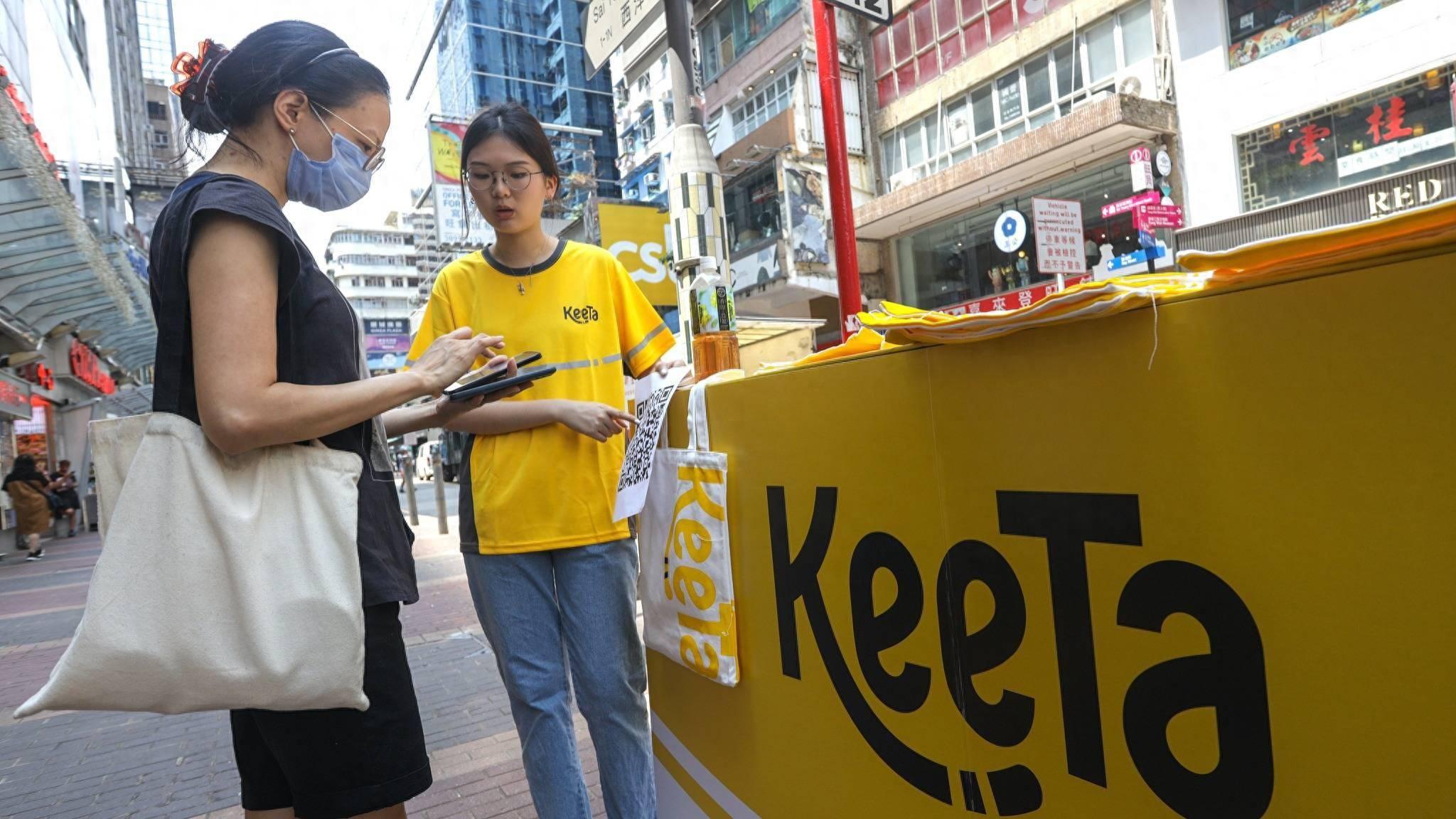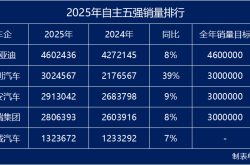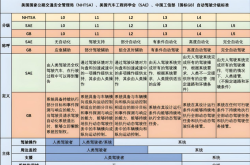Meituan takeout goes to sea: a set of models for the world
![]() 09/20 2024
09/20 2024
![]() 590
590

Saudi Arabia, a powerful Middle East country nestled in the desert, ranks among the top 20 in the world in terms of GDP. In recent years, due to the gradual strengthening of its internet infrastructure, Saudi Arabia has attracted wave after wave of Chinese enterprises and investors seeking opportunities in this desert "gold mine".
Among them is Meituan takeout.
Since October 2022, several core executives, including Zhu Wenqian, Wang Puzhong, and Wang Xing, heads of Meituan's strategic investment overseas department, have frequently visited the Middle East. Even during the pandemic, Meituan's team met with many relevant Saudi personnel to prepare for its overseas expansion into the takeout market.
After nearly 500 days of operation in Hong Kong, China, Meituan's overseas version of takeout, KeeTa, officially launched in Saudi Arabia on September 9. Instead of the capital city of Riyadh, with a population of over 8 million, KeeTa chose Al Kharj, a small city about 180 kilometers away from the capital and with a population of about 400,000, as its first destination.
KeeTa's decision to start in a small city rather than "covet" the massive population flow in Riyadh demonstrates its cautious approach to expanding overseas.
"Regarding Meituan's overseas expansion, we are still in a very early stage and will continue to evaluate opportunities in different regions," Wang Xing revealed during the second-quarter earnings conference call this year. He added that overseas business is a correct long-term strategy for Meituan, and the company will remain patient and continue to explore.
Although the strategic pace is steady, its strategic position has continued to rise. In February this year, Meituan further elevated its technology and international business, with the overseas business now directly reporting to Wang Xing himself. Qiu Guangyu, who once served as Wang Xing's assistant, was appointed head of overseas business (now known as KeeTa).
Combining intensive adjustments with tentative expansion, Meituan's overseas expansion of its takeout business is essentially taking advantage of favorable circumstances.
Replicating Hong Kong's successful experience
As a newcomer to the Saudi Arabian market, Meituan takeout is replicating its competitive strategy in Hong Kong, China.
In Hong Kong, KeeTa offered new users a "Billion Bonus" promotion, including discounts totaling HK$300 on orders and shipping fees. It also introduced various discount measures such as free shipping on Thursdays, Fridays, and Saturdays, daily half-price grabs, and free shipping for all.
Similarly, in Saudi Arabia, KeeTa currently offers discounted meal packages at 15 Saudi Riyals (approximately RMB 28.5) per meal, with discounts ranging from 40% to 72%, and all with free delivery.
On the delivery side, KeeTa adopts a strategy of increasing incentives for riders to achieve a more efficient and faster delivery service experience. In Hong Kong, KeeTa has reduced the average delivery time from over 30 minutes to around 27 minutes. In Saudi Arabia, KeeTa's delivery time is generally 20-35 minutes, significantly faster than local competitors.

KeeTa's launch in Saudi Arabia
KeeTa's strategy of entering the market is similar to the tactics used during the heyday of the Chinese internet, offering high subsidies to consumers and incentives to riders, effectively using money to establish consumption habits and market share.
As for the Saudi market, Meituan is clearly intent on quickly replicating its successful experience in Hong Kong.
Wang Xing has stated that Hong Kong serves as an excellent testing ground for experimenting with their global infrastructure and practical approach.
Data supports this claim. According to statistics from data service provider Measurable AI, as of March this year, Keeta's market share in terms of food delivery orders had surged to 44%, surpassing Deliveroo and Foodpanda, two competitors that have been operating in Hong Kong for about a decade. Keeta has emerged as the largest food delivery platform in terms of order volume in the Hong Kong market.
It is expected that soon, KeeTa will also rank among the top or even become the leading platform in terms of order volume in Saudi Arabia.
Similar to the Hong Kong market, KeeTa's expansion in Saudi Arabia is also cautious. As mentioned earlier, despite multiple visits by Meituan executives to Riyadh to conduct market research, the first destination chosen was not the large and challenging market of Riyadh but rather Al Kharj, a smaller city. Similarly, in Hong Kong, KeeTa began its pilot project in Mong Kok before expanding to Kowloon and Hong Kong Island, covering the entire city within just over half a year.
However, some Chinese restaurant owners in Riyadh have indicated that they have already integrated with the KeeTa system since June this year. Additionally, insiders have revealed that KeeTa is expected to enter Riyadh in October. It is already a foregone conclusion that KeeTa will enter the large market of the Saudi capital.
Meituan has not yet responded to inquiries regarding this matter.
Unlike the Hong Kong market, however, the food delivery market in Saudi Arabia is a much larger "gold mine." According to estimates by Statista, the total revenue of the Saudi food delivery market is expected to reach USD 11.74 billion in 2024, with a user penetration rate of 44.2%. In comparison, the penetration rate of the Chinese food delivery market is 54.5%.
At the same time, the annual growth rate of the food delivery market in the Middle East remains above 20%, higher than that in East Asia and North America. Furthermore, the Middle East leads the world in terms of average revenue per user (ARPU) for food delivery, at USD 475.2.
Of course, the competition in this "gold mine" market is also fierce. Currently, there are eight major food delivery platforms in Saudi Arabia, with the top two platforms, Jahez and HungerStation, accounting for 70% of the local market share.
At the same time, the Saudi market presents several unique differences. Some argue that since local riders in Saudi Arabia are accustomed to delivery times of an hour or longer, the "high-incentive-driven" approach that works in East Asia may not be as effective in Saudi Arabia.
In response, Meituan's strategy is to improve efficiency through technical means such as algorithm optimization, while also focusing on training a group of riders to become more competitive.
When launching global products in international markets, it is essential to adopt localized operations tailored to regional differences. In essence, Meituan's overseas expansion in its takeout business represents a continuous exploration based on past successes.
Exporting the Chinese internet model
Meituan's past success can be attributed to a systematic business model that has been repeatedly validated in the fiercely competitive Chinese internet landscape.
During the group-buying wars, Meituan honed its "ground forces" to create an absolutely results-oriented "ground promotion army." In the takeout wars, Meituan continuously optimized its technological capabilities to achieve the ultimate delivery efficiency by enhancing the optimal solution for road network planning. During the community group-buying wars, Meituan leveraged its past successful experiences to establish a foothold in the more complex realm of physical goods e-commerce with longer supply chains.
Having experienced the most brutal and intense business wars, Meituan has not only achieved victory in a broad sense but also refined its technology, operational expertise, and business model.
Today, with limited new opportunities in the domestic internet industry and increasing competition leading to greater resource consumption, some overseas markets are still in a consumption bonus period. Meituan's overseas expansion of its takeout business represents the exportation of a successful business model that can be "supplied" to the global market.
This is true not only for KeeTa but also for TikTok and Temu.
TikTok's success is a classic example of "global product + localized operation." Its interest-based recommendation algorithm continuously pushes short, snappy entertainment content that appeals to users worldwide. Meanwhile, when entering a new country, TikTok adopts targeted operational strategies based on local cultural landscapes and religious customs.
Similarly, Temu has replicated Pinduoduo's ultra-low pricing strategy in China, fiercely disrupting the overseas e-commerce industry while continuously tapping into the immense potential of Chinese manufacturing. Through cross-border models and supply chain upgrades, Temu enables a range of small and medium-sized factories to realize brand potential.
Two decades ago, as the Chinese internet industry was just taking off, heavyweight companies like Google had already emerged overseas. Amid the asymmetry of internet strength between China and foreign countries, domestic enterprises grew by drawing inspiration from overseas products, with the phrase "Copy to China" echoing loudly.
A decade ago, thanks to the popularity of smartphones and the acceleration and cost reduction of internet access, Chinese enterprises soared in the mobile internet race. Mobile payments, bike-sharing, and other innovations were hailed as the "new four great inventions" overseas, marking a shift towards "Copy from China" as the mainstream trend.
From imitating overseas models to exporting our own, the Chinese internet industry has made a daring leap forward over the past two decades. In proving the success of their business models, numerous enterprises have also demonstrated the triumph of the Chinese internet business model, which is horizontally diverse and builds its own commercial approach based on user needs, developing a model for each demand uncovered.
TikTok is a microcosm of China's mobile internet triumph on the global stage, while in more complex fields like e-commerce and food delivery, with more participants and links involved, Temu and KeeTa are pursuing similar paths and shared goals.
The vision of supplying a single Chinese internet model to the world is transforming from dream into reality.






